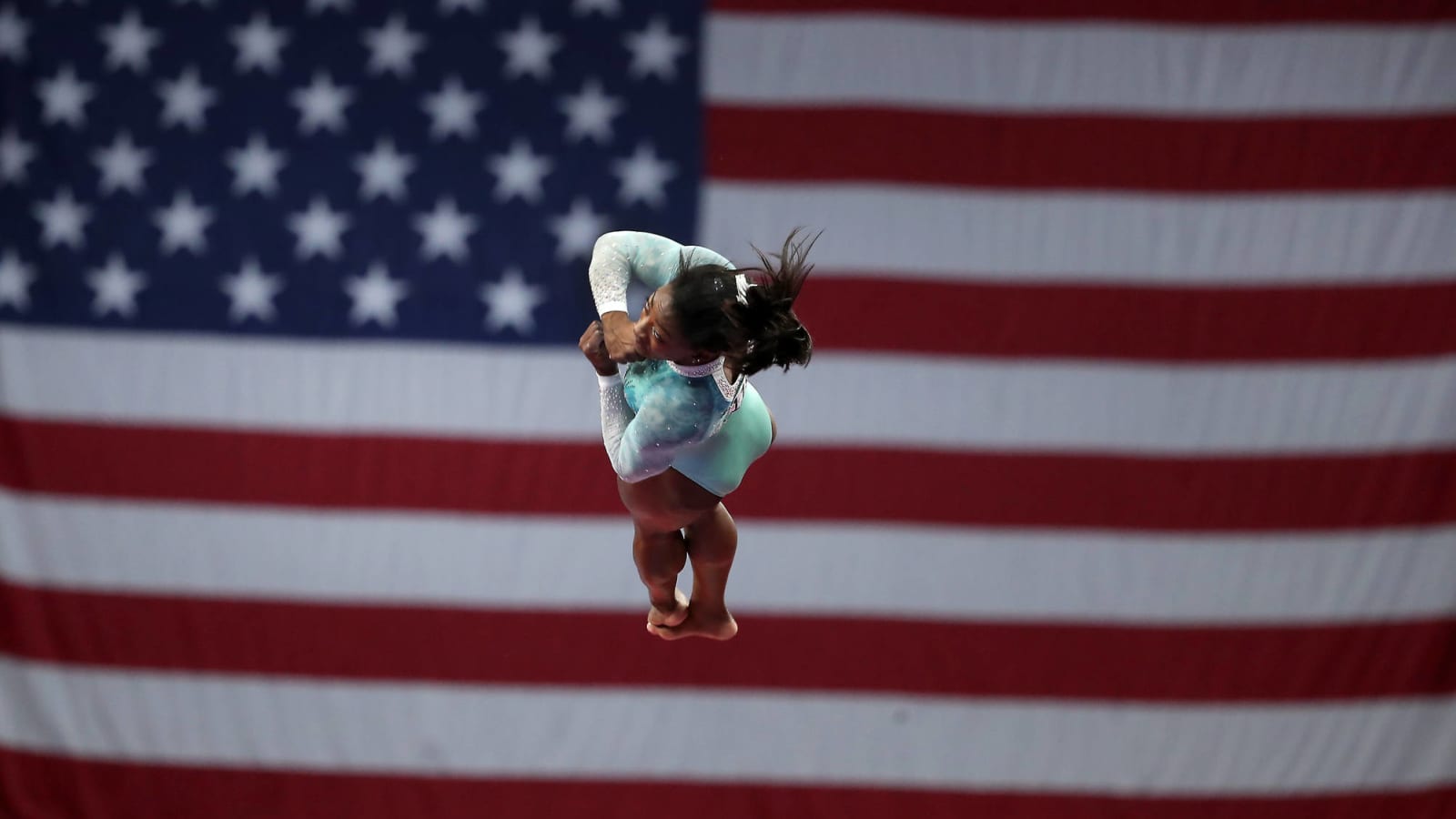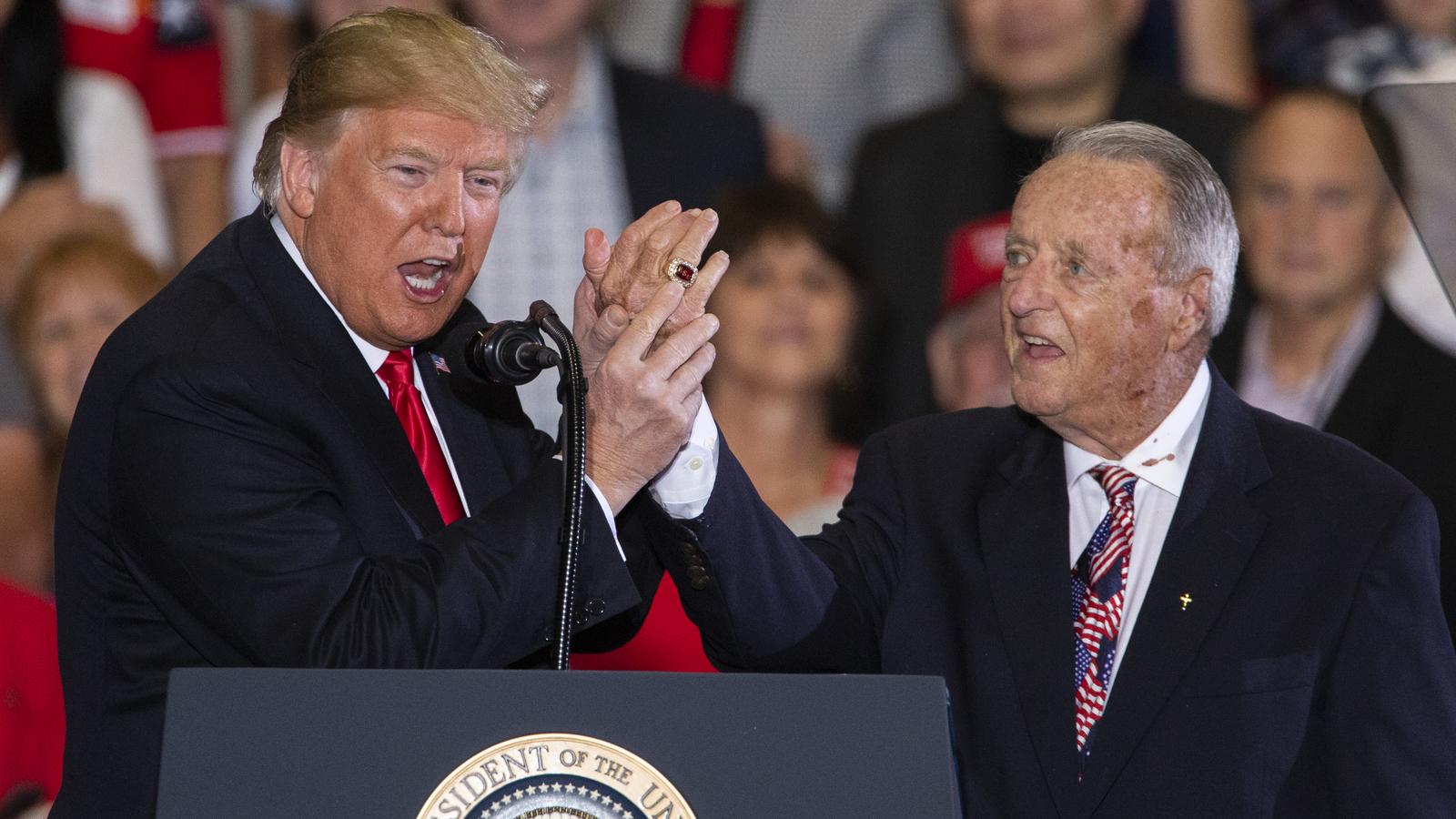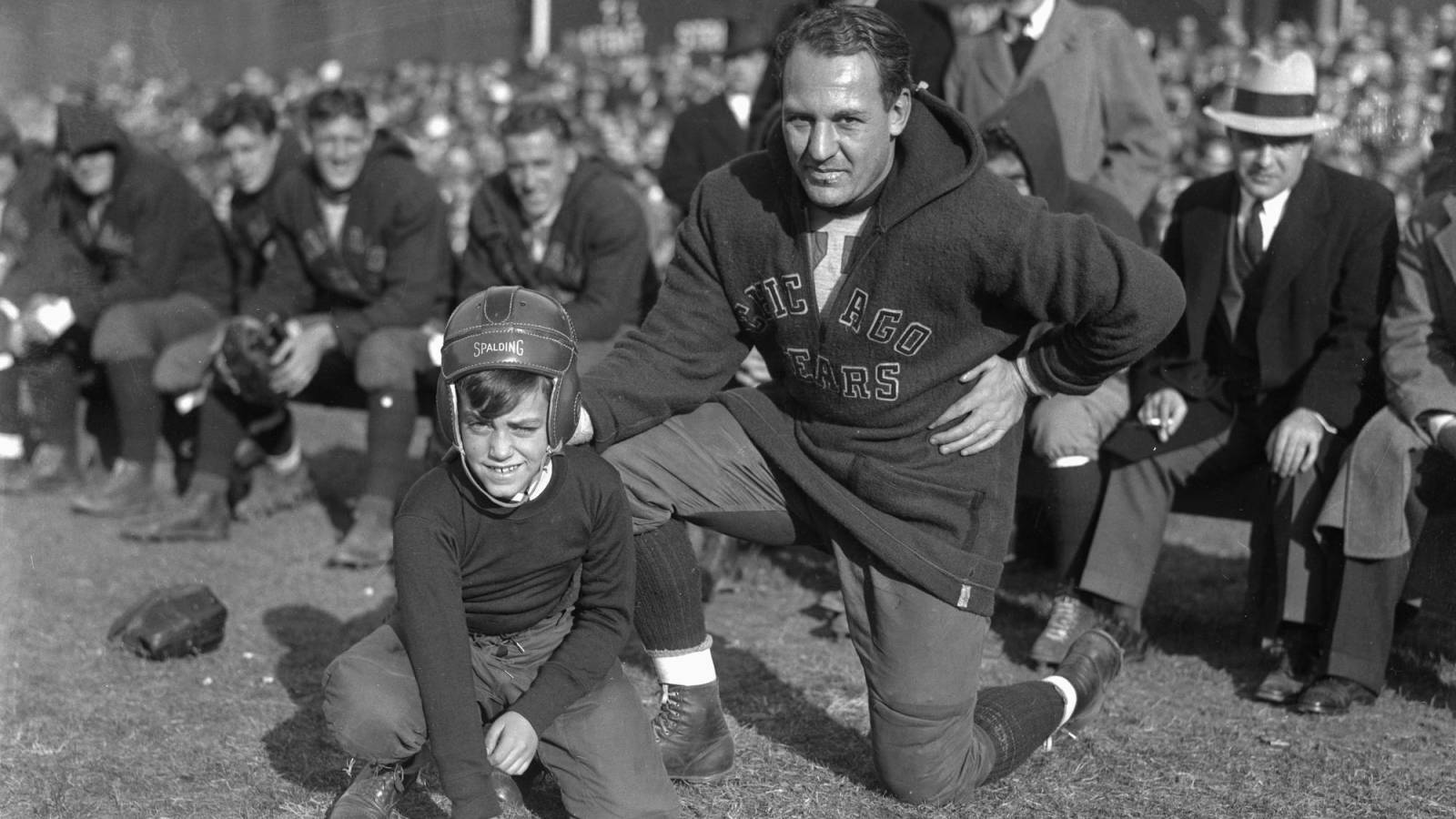
Sports & Politics Intersect: USA Gymnastics fall from USOC grace
“... Getting rid of the USAG and its current leadership means that children will be safer.” - John Manly, attorney for more than 100 victims of former Olympic doctor Larry Nassar, to the Associated Press following the United States Olympic Committee’s announcement that it’s begun the process of decertifying USA Gymnastics
On Monday, the United States Olympic Committee said the process to decertify, or revoke, USA Gymnastics as the sport’s national governing body was underway.
USA Gymnastics has remained in the spotlight for its continued ineptitude even after disgraced team doctor Larry Nassar was jailed for abusing hundreds of athletes. However, the latest move by the USOC reportedly stems from the recent discovery of documents found at the USA Gymnastics headquarters in Indianapolis, which could trigger further investigations into Nassar and the sexual abuse of athletes and gymnasts.
For some time now, investigators have been searching for such documents that were believed to be housed at the since-closed Karolyi Ranch training facility in Texas. Last week, USA Gymnastics informed the district attorney’s office in Walker County (Texas) that they had been found. In an article from IndyStar.com, the USAG states: “USA Gymnastics possesses documents that may have come from the Ranch that may be applicable to the investigation, though none of these documents contain Nassar’s name. Since the Board of Directors was seated only in late June 2018, it has no way of knowing if the documents are relevant to the case or if they originated at the Ranch.”
While an investigation should dig deeper into the documents, this also opens the door for another potential scandal involving the already-disgraced national leadership of gymnastics in America. USA Gymnastics, meanwhile, has a decision to make regarding its own future in the wake of the USOC’s action this week.
Decertification of a sport’s governing body within the confines of Team USA is not unprecedented. It’s happened on other occasions but has not involved a sport as with as high a profile as gymnastics. Several U.S. gymnasts, past and present, including those abused by Nassar and shamed by the organization they trusted, felt the USOC’s announcement this week was long overdue.
While it’s uncertain what a new governing body for the sport would look like officially, former athletes and Nassar survivors seem to agree that any leadership going forward should include people who have experience within the trenches of the sport, something past USA Gymnastics heads Steve Penny and Kerry Perry did not. In the meantime, the USOC said the country should have no trouble sending a gymnastics squad to Tokyo for the 2020 Olympics.
Then again, there are those who feel the USOC isn’t completely innocent in all this, which might warrant a closer look into its doings.
As for the state of the nation’s gymnastics, Team USA’s success continues amid its governing body’s lingering issues. The U.S. women won gold in dominating fashion at the recent world championships in Qatar, with star Simone Biles and teammate Morgan Hurd offering a glimpse of what they are capable of achieving at the Tokyo Olympics in 2020.
Need to know now:

Even USA Badminton cannot avoid the cultural rot found in Olympic organizations — After securing a decent rating of 11 in an audit three years ago (zero is ideal; 15 is average), USA Badminton’s latest audit slipped to 46 with a troubling report that identified high-risk areas of “background checks, final grant reporting, SafeSport training, and training verification.” Performing thorough background checks on potential doctors, trainers and administrators seems like a no-brainer in the shadow of the USA Gymnastics scandal, but this failure was particularly egregious, considering both a facility owner and youth coach involved with USA Badminton had sexual abuse allegations leveled against them. Add in some suspicious handling of a $20,000 Paralympics grant (85 percent of it was untraceable), this bastion of the Olympic organizations may be just as bad as the others.
The midterm elections garnered support for both sides — While a lot of NFL owners, GMs and coaches donated to political causes, the majority of them doled out support to Republicans. (Just take a look at Texans owner Bob McNair’s “gifts” to see the extreme version of sports money in politics.) Donald Trump’s Florida rally included state political heavyweights, longtime Seminoles coach Bobby Bowden and actual heavyweight Evander Holyfield, but following the “Sunday Night Football” backlash, the president’s “racist” migrant ad was pulled by NBC. A number of athletes, including WNBA legends Sue Bird and Diana Taurasi, WNBA MVP Breanna Stewart, and Miami Dolphins WR Kenny Stills, created an organization called Athletes 4 Impact, which sought out “solidarity against hate and a push to get out the vote.” Finally, the Philadelphia Flyers new mascot, Gritty, continued to ascend to icon status by bolstering the voting process.
The results are in...and so are two ex-NFL players — Former NFL players Colin Allred and Anthony Gonzalez are taking their respective skill sets to the House of Representatives. Allred, a Democrat from Dallas who played linebacker for the Tennessee Titans, commanded a stunning upset of 11-term incumbent Pete Sessions in the 32nd district of Texas. Gonzalez (R), a former wide receiver for the Indianapolis Colts, won a seat in Ohio’s 16th district, and many other athletes produced varying results in contests at the state level. Additionally, Seahawks wide receiver Doug Baldwin is eyeing a future career in politics, following his successful lobbying to pass a police-reform initiative in Washington state.
Cast a vote for sports betting — Following the Supreme Court’s ruling that essentially legalized gambling on sports, committees were lining up state by state to get legislation adopted. In Florida, a certain Miami team was advocating that voters approve an amendment to the state constitution. Not surprisingly, the amendment passed, but the road to legalized sports betting in Florida remains murky and may have actually been made more difficult. Somehow this could all factor in to the Jaguars leaving Jacksonville for London.
Also on the Florida ballot: dog racing — Voters approved Amendment 13, which would end dog racing in Florida by 2020. Eyeing a 22 percent decline in annual revenue and approximately 460 animal deaths since 2013, greyhound advocacy group GREY2K mobilized voter support to perpetuate “a historic event for greyhound advocacy and adoption...where Florida voters would vote down the cruelty of dog racing, sending a signal around the world.”
New AG is a former Iowa tight end and has all the sports takes — Matt Whitaker, chief of staff at the Department of Justice, is the newly appointed attorney general following the resignation of Jeff Sessions. Handpicked by the Federalist Society, Whitaker appeared in the Rose Bowl in 1991 for the Iowa Hawkeyes, and his Twitter feed demonstrates how much he loves all things Iowa football and all things tight end.
As if Florida voters would turn down a say in MLS expansion — While San Diego soccer fans are hoping for a “yes” vote on a measure that would secure a stadium site for a Landon Donovan-led investor group, voters in Miami have the chance to approve a referendum that would bypass a competitive bidding process. This would pave the way for David Beckham’s ownership group to build a stadium, park and soccer village in time for the 2021 season. The video promotion for the project alone is worth watching.
Our neighbors to the north seek cannabis reform — Now that recreational marijuana is legal in Canada, athletes bearing the Maple Leaf are leading the charge to remove cannabis from the World Anti-Doping Agency’s list of banned substances. Former figure skater Dylan Moscovitch, advocating against marijuana use as a performance enhancer in his sport, still sides with officials who are asking for more research and studies on the substance’s effects.
Attempts made to resolve the tragedy at Maryland - The University of Maryland Board of Regents rendered an apology to the family of Jordan McNair and the community at large for its decision to retain DJ Durkin as head coach of the football program. One day after upholding that decision, the same committee fired Durkin. The unthinkable loss of a child has been exceptionally hard for the McNair family and made worse by the incessant news cycle. “There hasn’t been a process to grieve due to the media attention and magnitude of the case,” said Marty McNair, Jordan’s father. The hope is that the deep wounds will be healed as best as they can and that Jordan will not have died in vain.
The WNBA’s next step is unclear — The Players Association of the WNBA has elected to opt out of its current collective bargaining agreement. NBA commissioner Adam Silver is not “disappointed” by this decision and maintains support for the league. However, the fact that WNBPA director of operations and lead union negotiator, Terri Jackson, is MIA produces a far more concerning stance.
Brent Musburger puts foot in mouth again — With an unnecessary tweet flung at Massachusetts Sen. Elizabeth Warren, the Raiders announcer found himself in hot water yet again. Notorious for his on-air ogling of Katherine Webb, wife of AJ McCarron, Musburger is getting worthy criticism for commenting about Warren’s heritage.
Organized crime and amateur boxing — Apparently, being accused of ties to organized crime is not a dealbreaker for being elected president...of the International Boxing Association (AIBA). The International Olympic Committee is now on a collision course with the sport, as status for the upcoming 2020 Olympics in Tokyo is in question with concerns over “judging, finance, the anti-doping programme and governance,” namely Uzbek businessman Gafur Rakhimov’s oversight.
Pay for your own strip club visits — Under Armour employees can no longer charge strip club visits to the company card. However surprising or unsurprising this is, it is good to see chairman and CEO Kevin Plank put an end to the bad practice.
- Manchester United midfielder will not wear symbolic flower — While Remembrance Sunday stands as an opportunity to commemorate the service of British military, Serbian-born Nemanja Matic will not wear the poppy flower to honor the fallen because his childhood village was bombed in the war of 1999. The Manchester United midfielder reflects humbly that while the gesture is not appropriate for him, he understands it is a symbol of pride for Britain.
This week in sports and politics history: Pennsylvania eliminate "blue laws" banning sports on Sundays

“He ended up changing the league.” - Art Rooney Jr. on his father fighting to repeal Pennsylvania’s blue laws for professional sports
Up until 1933, there were no professional sports played in the state of Pennsylvania on Sundays. The state strictly enforced blue laws that prevented pretty much anyone from working on the Sabbath. The selling and purchasing of goods, traveling, alcohol and, of course, sports were all were banned on Sundays.
Pennsylvania did, however, have a history of professional football in the state. The very first man to get paid to play football was from Pennsylvania, while the Allegheny Athletic Association formed the first pro football team ever on the North Shore of Pittsburgh in 1890.
The blue laws kept the NFL out of Pennsylvania until 1933, though. Art Rooney wanted things to change. After submitting an application for an NFL franchise in Pittsburgh and paying the $2,500 ownership fee, Rooney convinced Pennsylvania lawmakers to repeal the blue laws that prohibited professional sports to be played on Sunday.
That year, the Pennsylvania Legislature passed a bill that would allow local communities to vote on whether they wanted pro sports and entertainment on Sundays, and in the November elections, both Pittsburgh and Philadelphia repealed the blue laws by wide margins despite opposition from the Ku Klux Klan.
The vote didn’t just open up the door for football games on Sundays, but for baseball, too. The economic pressures from the Great Depression pushed pro baseball teams to fight to repeal the blue laws in their sport, as well. Following the win, pro sports were allowed to be played on Sundays, but only between 2 p.m. and 6 p.m.
More must-reads:
- Rams and Chargers react to mass shooting in Southern California
- Rams’ Andrew Whitworth donating paycheck to Thousand Oaks victims
- The 'No. 1 overall NFL Draft picks' quiz
Breaking News
Customize Your Newsletter
 +
+
Get the latest news and rumors, customized to your favorite sports and teams. Emailed daily. Always free!

